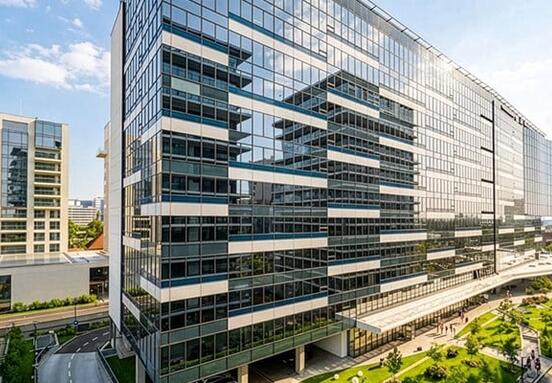Bucharest: a growing hub for flexible workspaces
Bucharest’s commercial real estate landscape is dynamic, with over 50 flexible workspace locations managed by nearly 30 providers.
This niche market now accounts for a significant 2.3% of the city’s total office stock, positioning it similarly to established hubs like Dublin and Prague.
For businesses, this translates into a wide array of options to suit diverse needs, from startups to large enterprises seeking agile solutions.
Unbeatable cost-effectiveness: a key strategic advantage
One of the most compelling reasons to consider Bucharest for your office needs is the highly competitive cost. The average monthly rent for a private office within a flexible workspace in Bucharest stands at approximately €300.
This is remarkably lower than in many comparable European cities, where prices can escalate to €500 in Amsterdam, €625 in Dublin, and even €850 in London. This significant cost saving, combined with a stable and expanding office market, makes Bucharest an incredibly attractive proposition for international operators aiming to grow within the CEE region.
Beyond traditional: the strategic complementarity of flexible offices
The perception of office space is evolving. As Daniela Popescu, Director, Tenant Services & Workplace Advisory in the Office department at Colliers Romania, points out, “We’re no longer talking about a divide between traditional and flexible offices, but rather a strategic complementarity between two models with different, yet equally important, roles.”
This modern perspective highlights that flexible workspaces are not merely an alternative but an integral part of a comprehensive real estate strategy, offering agility, scalability, and cost efficiency that traditional leases may not provide.
Regional expansion and global trends
The growth of flexible workspaces isn't confined to Bucharest. Cities like Cluj-Napoca, Iași, and Timișoara are also experiencing a surge in demand and operator interest. This is largely fueled by vibrant IT&C ecosystems, a rich talent pool, and a progressive openness to modern work models. This regional expansion mirrors a broader trend observed across Central and Eastern Europe in 2024, with markets such as Riga, Ljubljana, Tallinn, and Sofia nearly doubling their flexible workspace capacity within a single year.
Globally, the EMEA region’s flexible office market has seen substantial growth, with total stock reaching approximately 8.3 million sqm by the end of 2024, a dramatic increase from just 2 million sqm in 2010. This trajectory underscores the increasing importance and widespread adoption of flexible office solutions worldwide.
Source: property-forum.eu






